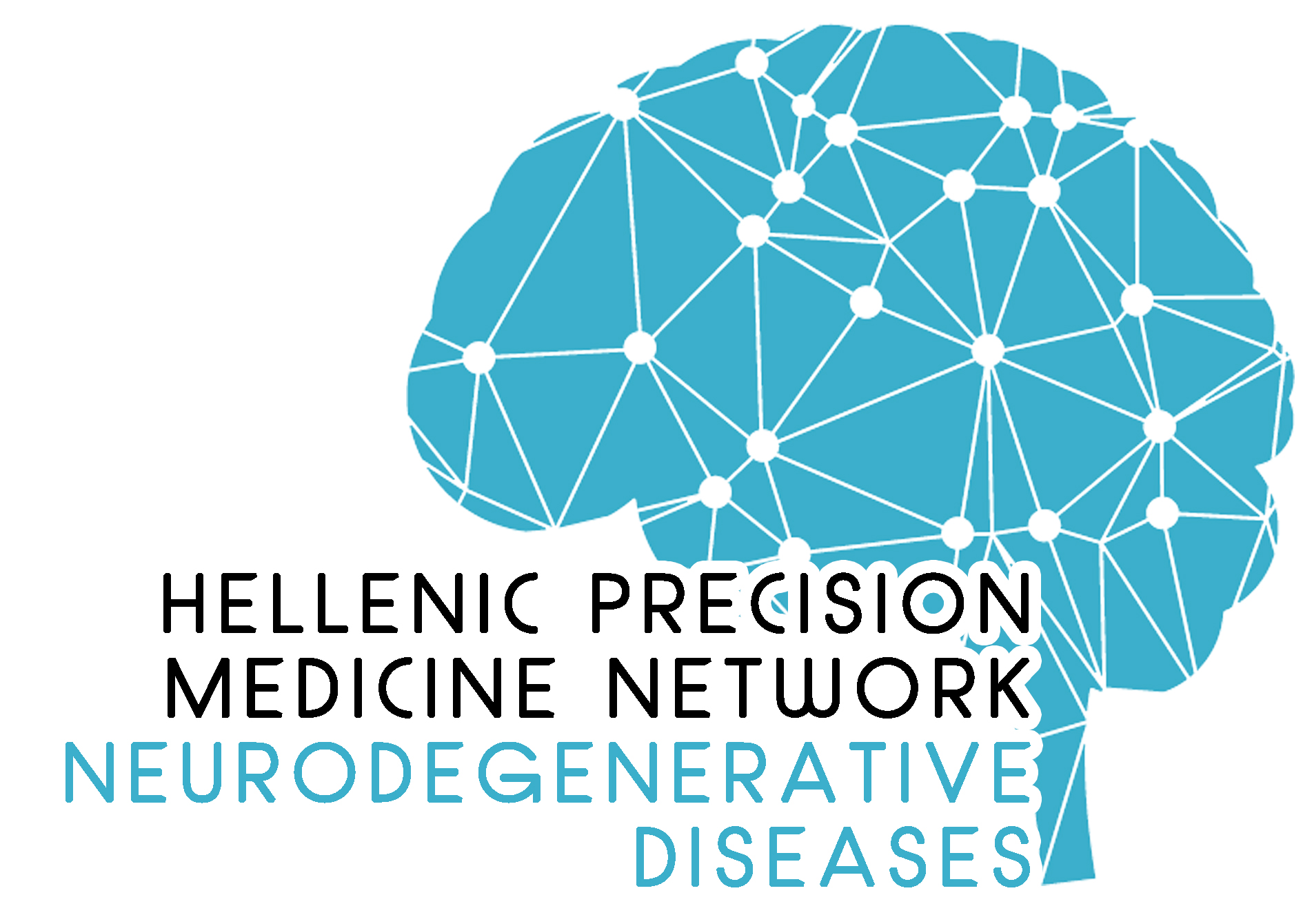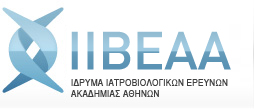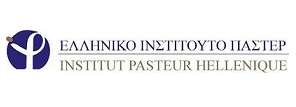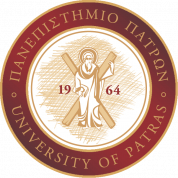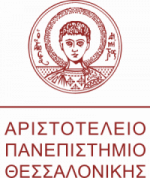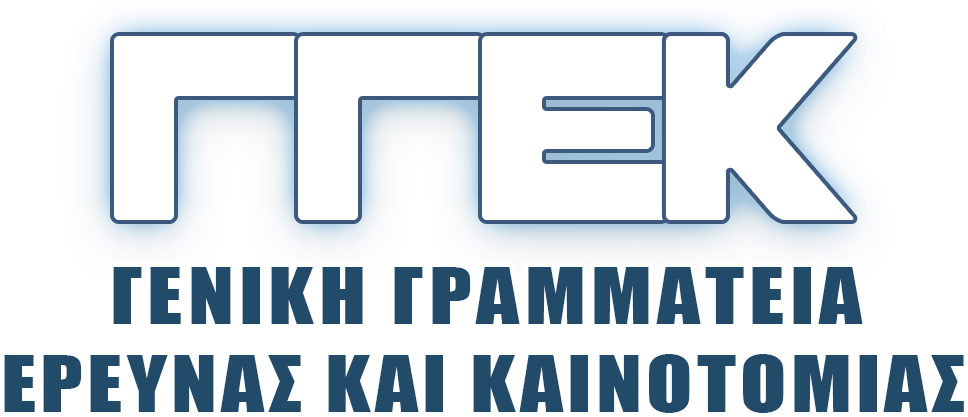Partners
Level A – Axis Network
National and Kapostrian University of Athens
The School of Health Sciences and the School of Positive Sciences of NKUA participate in EDIAN.
From the School of Health Sciences, the Medical School participates, specifically the 1st Neurological Clinic (Aeginite Hospital) and the 2nd Neurological Clinic (Attica Hospital). These two Neurology Clinics diagnose and treat patients with neurodegenerative diseases, including Alzheimer’s disease, Parkinson’s disease, Huntington’s disease, Kinetic Neuron disease, and Multiple Sclerosis. At the same time, high-level research is being conducted on the mechanisms of neurodegeneration, the search for biomarkers, and the genetic basis and future treatment of neurodegenerative diseases.
The Department of Biology and the Department of Chemistry participate from the School of Sciences. In these two Departments the molecular basis of neurodegenerative diseases is investigated and biomarkers are sought for the diagnosis of these diseases.
Organic project implementation units
– Aeginiteio Hospital (A Neurological Clinic)
–
Attica Hospital (B Neurological Clinic)
–Biology Department, Chemical Department of EKPA
Scientific director
Leonidas Stefanis,
-Professor of Neurology, Director of A Neurology Clinic
Institute for Biomedical Research of the Academy of Athens
The participation of IIBEAA in EDIAN will focus on the following main axes:
- Genetic analysis of biological material for detection of changes associated with neurodegenerative diseases by Whole Exome Sequencing (WES). At the IIBEAA Genomics Center, targeted genetic analysis will be performed in specific cases where there is a high probability of detecting mutations related to neurodegenerative disease.
- Identification of new biological indicators for neurodegenerative diseases, aiming at the individualized therapeutic approach. IIBEAA will contribute to the investigation and identification of new biological markers, such as extracorporeal α-synuclein, neuroid microRNAs and lncRNAs in biological material of patients with Parkinson’s Disease and other neurodegenerative diseases.
- Development and study of cellular and animal models, in order to find the underlying pathogenetic mechanisms in order to identify new therapeutic targets. IIBEAA will contribute to the investigation of molecular and cellular mechanisms of neurodegeneration as well as to the identification of new therapeutic targets in existing and developing cellular and animal models of neurodegenerative diseases. It will also contribute to the further analysis of transgenic models of rodent neurodegenerative diseases based on genetic modification in relation to genetic and biochemical findings from patients with neurodegenerative diseases.
Participating Research Teams
– Costa Vekrelli Laboratory
– Spyros Georgopoulos Laboratory
– Laboratory of Epamineondas Doxakis
– Laskaros Zagoraios Laboratory
– Pericles Makrithanasis Laboratory
– Hellenic Center for Genomics
– Maria Xylouris Laboratory
Scientific director
Spyros Georgopoulos,
IIBEAA Level II Researcher
Hellenic Pasteur Institute
The EIP participates in Axis 3 of the Network which includes the development of cellular and animal models, as well as new therapeutic micromolecules and biological markers for neurodegenerative diseases that will allow the application of personalized medical practices. In this context, it contributes to the following actions:
- Improvement of existing two-dimensional and three-dimensional models of neurodegenerative diseases based on the culturing and differentiation of stem cell-derived nerve cells (iPSCs) in patients with neurodegenerative diseases
- Investigation of neurodegeneration mechanisms in existing and developing cellular and animal models of neurodegenerative diseases
- Thorough phenotypic analysis of models of neurodegenerative diseases in muscles based on genetic modification or immunological interventions
- Identification of new therapeutic targets in cellular and animal models of neurodegeneration
- Identification of new biological markers in cellular and animal models of neurodegeneration
- Optimization of existing promising pharmaceutical approaches developed by members of institutions for the treatment of neurodegenerative diseases
Application of pharmaceutical or molecular methods to inhibit or slow neurodegenerative phenotypes in both cellular and animal models of neurodegenerative diseases
Participating Research Teams
– Laboratory of Cellular & Molecular Neurobiology – Stem Cells
– Laboratory of Molecular Genetics (Researcher A, Research Director, Head of Department of Immunology & Laboratory of Molecular Genetics)
Dr. Rebecca Matsa,
Researcher A ‘, Research Director, Head of the Department of Neurobiology and the Laboratory of Cellular & Molecular Neurobiology – Stem Cells
ΕΚΕΒΕ Alexander Fleming
The participation of the Alexandros Fleming Research Center in EDIAN will contribute to the establishment of an internationally innovative and innovative research area for Greece, which concerns the design of diagnostic tools for neurodegenerative diseases with high prevalence and social costs associated with the protein.
Despite the progress made in recent years in the study of dementia Tau-syndromes, their early diagnosis still remains difficult. However, the recognition of dementia at an earlier stage of its development would enable patients to benefit as much as possible from the timely initiation of appropriate medication. Finding biological markers for the diagnosis of Tau pathology in the early stages of development is crucial.
The researchers will use the established Drosophilic Taupathies model, in which the onset and progression of the pathology can be accurately monitored to proteomically determine changes in brain proteins that accompany the progression of the disease.
Next, proteomics studies will be performed in the mouse Taupathies model with the aim of identifying the changing proteins in the context of the neurodegenerative process. The proteins with a common disease progression profile in both models will be selected for thorough genetic and biochemical analysis to understand the etiological basis of neurodegenerative diseases.
Participating Research Teams
– Laboratory of Cognitive and Neurodegenerative Diseases
Scientific director
Efthymios M.X. Skoulakis,
PhD, Researcher A, Director of the Institute of Basic Biomedical Research
University of Patras
In the context of the participation of the Laboratory of Pharmacogenomics and Personalized Therapy of the University of Patras of the Department of Pharmacy in the EDIAN Emblematic Action, the laboratory contributes to the achievement of the set goals, carrying out research work aimed at detecting Greek population, and the recording of family and sporadic cases of the disease in our country. Through this it will contribute to the creation of a national record – registers of Neurodegenerative Diseases and their Precursors, the creation of a bank of Biological Material Neurodegenerative Diseases and their Precursors, the Molecular analysis of biological material with the aim of Precision Medicine, the provision of free genetic tests for the early-preclinical diagnosis of neurodegenerative diseases, the evolution of bioinformatics, the development of models, as well as new biological indicators for neurodegenerative diseases that will allow the application of managing the results of the research with a view to promoting Medical Precision and using the research for the benefit of Public Health.
Participating Research Teams
– Department of Pharmacy, Laboratory of Pharmacogenomics and Personalized Therapy.
– Department of PP Medicine, Laboratory of Clinical Neurology.
Scientific director
George P. Patrinos,
Professor of Pharmacogenomics and Pharmaceutical Biotechnology, Laboratory of Pharmacogenomics and Personalized Therapy, Department of Pharmacy, University of Patras
Aristotle University of Thessaloniki
AUTh is going to participate in the Network through a contribution to:
- Development and optimization of unified protocols for registration of clinical, imaging and neuropsychological data and their submission to the common electronic platform of the network.
- Creation of a national record – a register of Neurodegenerative Diseases and their Precursor Forms.
- Creation of a bank of Biological Material of Neurodegenerative Diseases and their Precursor Forms.
- Biochemical analysis of biological material aiming at Precision Medicine. In particular, indicators of neurodegeneration in biological samples in well-characterized populations will be studied in terms of clinical semiology on the basis of internationally recognized diagnostic criteria.
- Molecular analysis of biological material aiming at Precision Medicine. In particular, ‘omics technologies will be combined in a variety of biological samples in order to capture an individualized molecular profile of patients with neurodegenerative diseases on the basis of Precision Medicine.
- Development of models, as well as new biological indicators for neurodegenerative diseases that will allow the application of personalized medical practices
- Secure data collection, analysis, storage and distribution.
- Support and development of the developed clinical network
- Effective management of the results that will emerge from the research based on the promotion of Medical Precision and use of the research for the benefit of Public Health.
Participating Research Teams
Department of Medicine, AUTh:
– Department of Neuroscience, AUTh (University Neurology Clinic / University Neurology Clinic / University Neurology Clinic).
– Department of Child Health (A & B ‘Pediatric Clinic AUTh).
– Department of Biological Sciences and Preventive Medicine AUTh / KEDEK / GENeTres / FunPATh (Laboratory of Microbiology / Laboratory of Biological Chemistry).
– Department of Physiology – Pharmacology (Laboratory of Clinical Pharmacology).
Department of Chemistry of AUTh:
– Laboratory of Analytical Chemistry.
Department of Psychology, AUTh School of Philosophy:
– Department of Experimental and Cognitive Psychology.
Department of Pharmacy of the School of Health Sciences:
– Department of Pharmacology.
Department of Chemical Engineering, AUTh, HERACLES Research Center for Exhibition and Health – KEDEK
Scientific director
Nikolaos Grigoriadis,
Professor of Neurology, AUTh, Director of the 2nd Neurological Clinic of AUTh, Coordinator of the Medical Precision Unit for Neurodegenerative Diseases of the Center for Biomedical Research and Training of the Aristotle University of Thessaloniki (www.cbre.auth.gr)
Medical School, University of Crete
The Medical School of the University of Crete started operating in the academic year 1984-85 with the admission of 91 students. Today, the Medical School has 127 faculty members. divided into 10 Sectors. Of these, 37 are Professors (grade A), 33 are Associate Professors (grade B), 49 are Assistant Professors (grade D) and 4 are Lecturers (grade D). The enrollment of the first postgraduate students in the P.M.S. for Postgraduate Specialization Diplomas (MDE) was done in 2003-2004. Today, the Department of Medicine of the University of Crete operates organized Postgraduate Programs that provide high quality postgraduate education in a wide range of specialties.
The Medical School of the University of Crete has highlighted An important and multilevel project in the fields of education, research and innovation. Our vision is to continue to contribute to meeting the multifaceted educational, research, social and needs that emerge in an age of challenge, adhering to the principles of scientific ethics, ethical responsibility and justice.
At the center of all is the provision of high quality higher education at both undergraduate and postgraduate – doctoral level. The peculiarity of medical science as anthropocentric is the quintessence of the educational policy of our School. At the same time, our goal is extroversion, connection with society and the cultivation of a creative environment that will inspire students, teachers and employees. After 36 years of continuous and uninterrupted presence, we continue to train doctors who will serve science, research and society.
Scientific director
Panagiotis Mitsias
Deputy Scientific Officer
Achilles Gravanis
University of Thessaly, Neurological Clinic (“PTH”)
EDIAN participates in the Medical School of the University of Thessaly (University of Thessaloniki) and specifically the Neurological Clinic of the University of Thessaloniki and the Neurogenetics laboratory. The neurology clinic diagnoses and treats patients with neurological diseases including Alzheimer’s disease, Parkinson’s disease, Huntington’s disease, motor neurone disease and MS.
The Neurological Clinic of the University of Thessaly (PC) with the corresponding Neurogenetics laboratory, in recent years has a tradition in the genetics of neurological diseases with significant research and high-level publications in diseases involving neurodegeneration such as Alzheimer’s disease (AD), Parkinson’s disease ( ), multiple sclerosis (MS), motor neurone disease (ALS), Huntington’s disease and other rare genetic diseases.
The Neurological Clinic of the University of Thessaloniki is the only clinic of the 5th Health District of Thessaly and Central Greece (5th RAE) and is the only reference clinic for 1.2 million population of the 5th RAE. The participation of the Neurological Clinic of the University of Thessaloniki in the National Research Network for Genetic Neurodegenerative Diseases can be the following:
- Epidemiological study for early AD, PD disease in the city of Larissa.According to the research axis 1 of the Early – Preclinical diagnosis and based on our previous experience with the HELIAD Study in the city of Larissa we have identified patients with early evidence of AD disease (MCI and subjective symptoms of the disease) and these patients can be studied clinically but mainly by collecting biological material for the detection of biological markers as described below. A similar approach will be taken in patients with Parkinson’s disease precursor detected by the same study.
- Creating a database of patients with neurodegenerative diseases: demographic, epidemiological, clinical and imaging data will be recorded at the beginning and at predetermined time points of patients to assess their course.
- Creation of a biological material bank for patients with neurodegenerative diseases: This biological material bank will include serum / plasma, urine, CNS, DNA, cells.
In addition, clinical and epidemiological data of patients with neurodegenerative diseases will be recorded. The Neurological Clinic of the University of Thessaloniki operates special clinics for all the aforementioned neurodegenerative diseases. The neurogenetics laboratory already has genetic material in a large number of patients with neurodegenerative diseases and will be enriched with further patients and biological material.
- Genetic markers of genetic neurodegenerative diseases:
Detection of genetic mutations by decoding all exons of the human genome by whole generation exome sequencing (WES), and using length control techniques (MLPA, fragmant analysis).
- Epigenetic markers of genetic neurodegenerative diseases:
a. Study of methylation, total or promoters of specific genes
b. detection of miRNAs, selective silencing of miRNAs or genes involved in signaling pathways.
- Protemics indicators of neurodegenerative diseases:
The CSF, serum/plasma or urine proteins of patients with neurodegenerative diseases will be processed according to the appropriate standardized protocol and then separated in terms of isoelectric point and molecular weight. The processing of the proteins will be done in the Laboratory of Hygiene & Epidemiology of the University of Thessaly using the Microflex LT Mass Spectrometer (Bruker Daltonic GmbH, Bremen, Germany). The parameters of the machine analyzes will be selected accordingly, and with the use of FlexAnalysis v4.0 software (Bruker Daltonics) as well as statistical packages specific to the processing of mass spectrometry data will be determined either specific biomarkers in patients compared to a group of healthy or changes in the overall protein profile of the CNS, serum / plasma or urine.
Participating Research Teams
Neurological Clinic of PTH
Laboratory of Neurogenetics, University of Thessaloniki.
Scientific director
Dardiotis Efthymios, Associate Professor of Neurology, University of Thessaly,
Director of the Neurological Clinic of the University of Thessaloniki
Foundation of Research and Technology
FORTH coordinates the EDIAN Action and participates in the Network with two Institutes: the Institute of Molecular Biology and Biotechnology and the Institute of Informatics. FORTH’s contribution is made in the following areas:
- Genetic analysis of biological material for the detection of changes associated with neurodegenerative diseases by Whole Exome Sequencing (WES) with the aim of Precision Medicine. The provision of free genetic tests for the purpose of early preclinical diagnosis of neurodegenerative diseases.
- Identification of new biological indicators for neurodegenerative diseases, aiming at the individualized therapeutic approach.
- Development and study of cellular and animal models, in order to find the underlying pathogenetic mechanisms in order to identify new therapeutic goals that will allow the application of Medical Precision practices.
- Development of methodologies and tools for the correlation of multilevel imaging and genetic biomarkers as well as indicators from neuropsychological evaluation data in order to mutually enhance their diagnostic power and to create tools to support clinical diagnosis.
- Design and development of the IT tools ecosystem for the management of clinical and genetic information of the patients participating in the research that will be carried out in the framework of the Flagship Action for the Research of Neurodegenerative Diseases in the Basis of Medical Precision.
- The effective management of the results that will emerge from the research with a view to promoting Medical Precision and using the research for the benefit of Public Health.
Participating Research Teams
– Institute of Molecular Biology and Biotechnology (Individualized Genomic Analysis Unit / Neurogenetic & Aging Laboratory)
– Institute of Informatics (Laboratory of Information Systems / Laboratory of Computational Bio-Medicine)
Scientific director
Nektarios Tavernarakis,
Full Professor of Molecular Systems Biology at the Medical School of the University of Crete, Chairman of the Board and Director of the Central Directorate of the Institute of Technology and Research (FORTH)
Level B – Developing Network
Bodies that will potentially participate in full development at Level B:
- University of Ioannina with special units for Neurodegenerative Diseases
- Democritus University of Thrace with special units for Neurodegenerative Diseases
- NSS Neurological Clinics with special units for Neurodegenerative Diseases

